How to Prepare for Bank Exam | NABARD Manager Mock Tests & Previous Year Papers 2025 - Bank Exams PDF Download
Introduction: Why This Guide Was Created?
This guide has been created to answer the question "How to Prepare for Bank Exams?" in the best possible way. Many aspirants waste time, effort, and money due to a lack of direction while preparing for banking exams. This guide ensures that every aspirant focuses on studying what truly matters. We’ve worked hard to design a strategy that will help you achieve your dream of securing a banking job.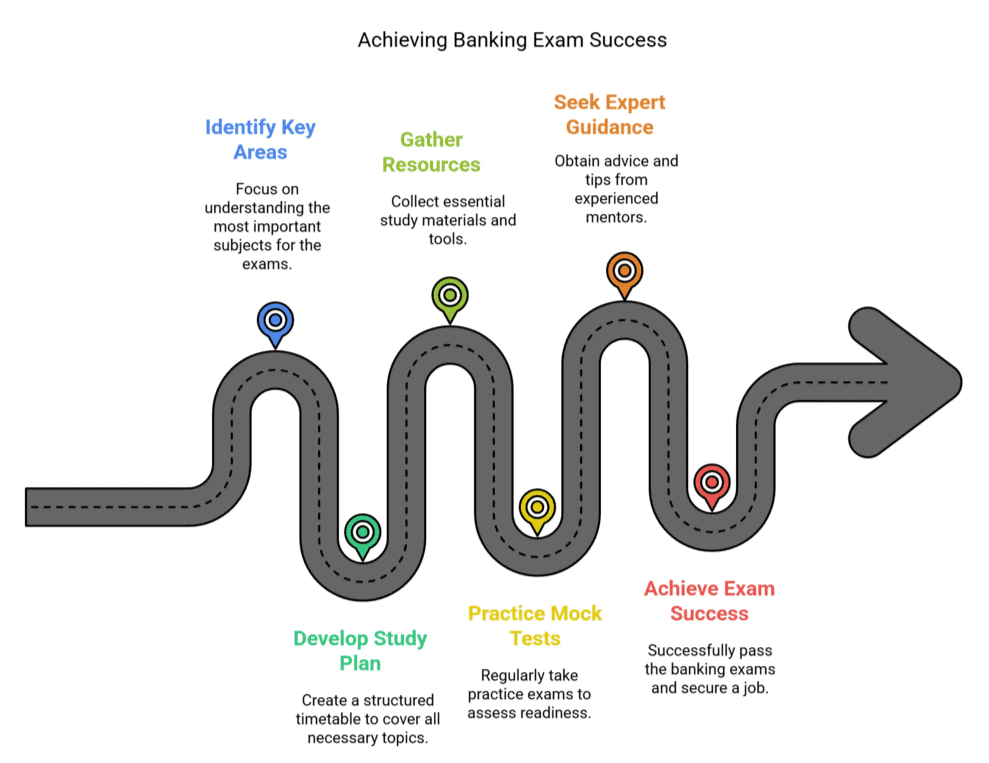
The guide has been created by EduRev experts, in collaboration with toppers of various banking exams like Ashwin Verma (SBI PO, IBPS PO, RRB Clerk, SBI Clerk ), Richa Kumari (IBPS), and Abhishek Chowdhury (IBPS RRB ), who have shared their insights to help aspirants.
Study Plan for Bank Exam Preparation
With exams like SBI Clerk, SBI PO, IBPS PO, IBPS Clerk, and IBPS RRB scheduled for 2025, a solid and practical study plan is crucial for success. Here's a comprehensive 2 month study plan, organized on a weekly basis, to guide your preparation and help you perform your best in these exams.Weekly Schedule
8-Week Study Plan for Competitive Exams
Week 1
Quantitative Aptitude: Calculation Speed, Squares up to 30, Tables up to 20, Cubes & Multiplication Tricks, Percentage-Fraction Conversion.
Reasoning Ability: Alphanumeric Series, Blood Relations.
English Language: Noun, Pronoun.
GA/Banking Awareness: History of Banking in India.
Week 2
Quantitative Aptitude: Quadratic Equations, Number Series, Wrong Number Series.
Reasoning Ability: Direction & Distance, Inequalities.
English Language: Tense, Adjective.
GA/Banking Awareness: Types of Bank Accounts.
Week 3
Quantitative Aptitude: Percentages, Ratio & Proportion, Averages.
Reasoning Ability: Coding-Decoding, Syllogism.
English Language: Adverb, Subject-Verb Agreement.
GA/Banking Awareness: Banking Structure in India.
Week 4
Quantitative Aptitude: Profit, Loss & Discount.
Reasoning Ability: Order & Ranking, Input-Output.
English Language: Cloze Test.
GA/Banking Awareness: Types of Cheques.
Week 5
Quantitative Aptitude: Mixture & Alligation.
Reasoning Ability: Sitting Arrangement, Floor Puzzles.
English Language: Sentence Improvement.
GA/Banking Awareness: Monetary Policy of RBI, GDP.
Week 6
Quantitative Aptitude: Simple Interest & Compound Interest.
Reasoning Ability: Uncertain Seating Arrangement.
English Language: Error Spotting, Fill in the Blanks.
GA/Banking Awareness: Prepaid Payment Services, Types of Cards, UPI.
Week 7
Quantitative Aptitude: Partnership, Time & Work.
Reasoning Ability: Square-Based Puzzles, Double Line Puzzles, Year-Based Puzzles.
English Language: Para Jumbles, Phrase Replacement.
GA/Banking Awareness: Government Schemes.
Week 8
Quantitative Aptitude: Data Interpretation (DI) and Caselets.
Reasoning Ability: Blood Relation Puzzles, Miscellaneous Puzzles.
English Language: Reading Comprehension.
GA/Banking Awareness: Current Affairs (Last 6 Months).
Daily Targets and Preparation Strategy
Step 1: Clear Your Concepts First
Before diving into daily practice, make sure you have a solid understanding of the concepts. Follow the Weekly Schedule above to cover all the key topics.Step 2: Daily Targets
Once you've followed the Weekly Schedule, aim to complete the following Daily Targets1. Quantitative Aptitude (Daily Targets)
- Simplification & Approximation: 10 Questions
- Number series & Wrong Number series: 5 Questions (Each)
- Quadratic Equations: 5 Questions
- DI and Caselet: 4 (3 Easy, 1 Mains Level)
- Arithmetic: 15 Mixed questions

2. Reasoning Ability (Daily Targets)
- Alphanumeric Series: 2 Sets
- Direction Distance: 1 Set
- Syllogism: 5 Questions
- Blood Relations: 2 Sets
- Seating Arrangement: 2 Sets
- Floor Puzzle: 2 Sets
- Order & Ranking: 1 Sets
- Inequality: 5 Questions
- Year-Based Puzzle: 1 Set
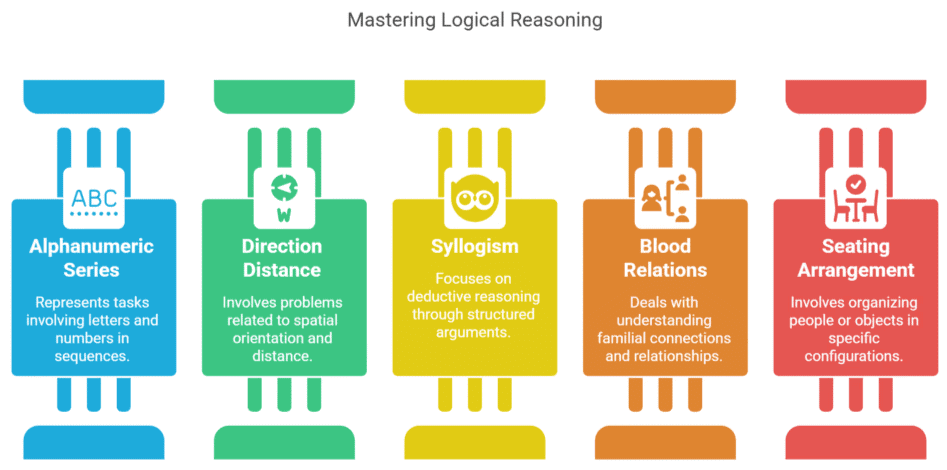
Mains Level (Daily)
Puzzle: 2 Mains Level puzzles
Input Output: 1 Set
3. English Language (Daily Targets)
- Grammar (Focus on Noun, Pronoun, Tense, Adjective, etc.): 15 Minutes
- Error Spotting: 5 Questions
- Para Jumble: 1 Set
- Sentence Improvement: 5 Questions
- Reading Comprehension (RC): 1 Set
- Fill in the Blanks: 5 Questions
- Cloze Test: 1 Set
- Ace Reading Comprehension: 1 Set
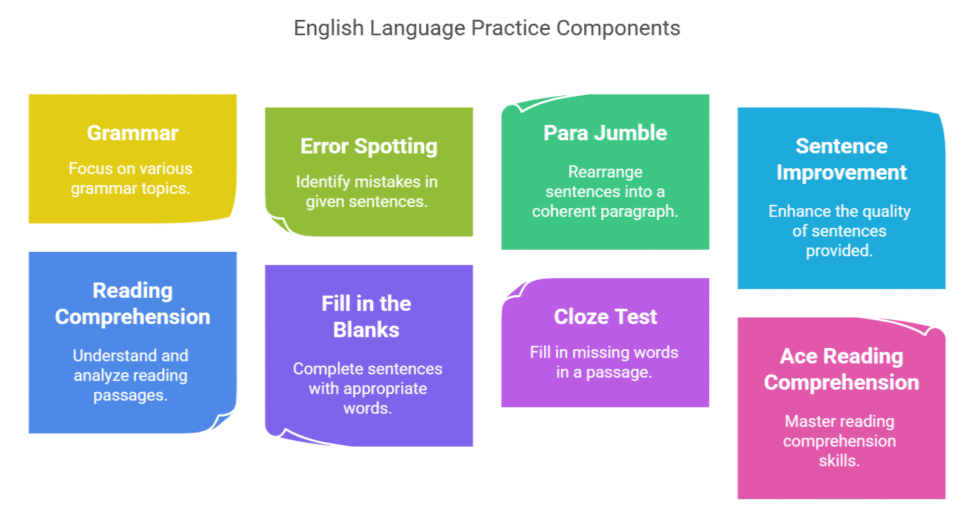
4.General Awareness Preparation (Daily Targets)
- News Reading: Daily read the latest news
- Revision: Revise what you learned (Daily)
- Quiz: Take a quiz for daily current affairs
- Current Affairs: Focus on Weekly or Monthly updates also
- Mains Focus: Revise at least 6 months of current affairs before the Mains exam
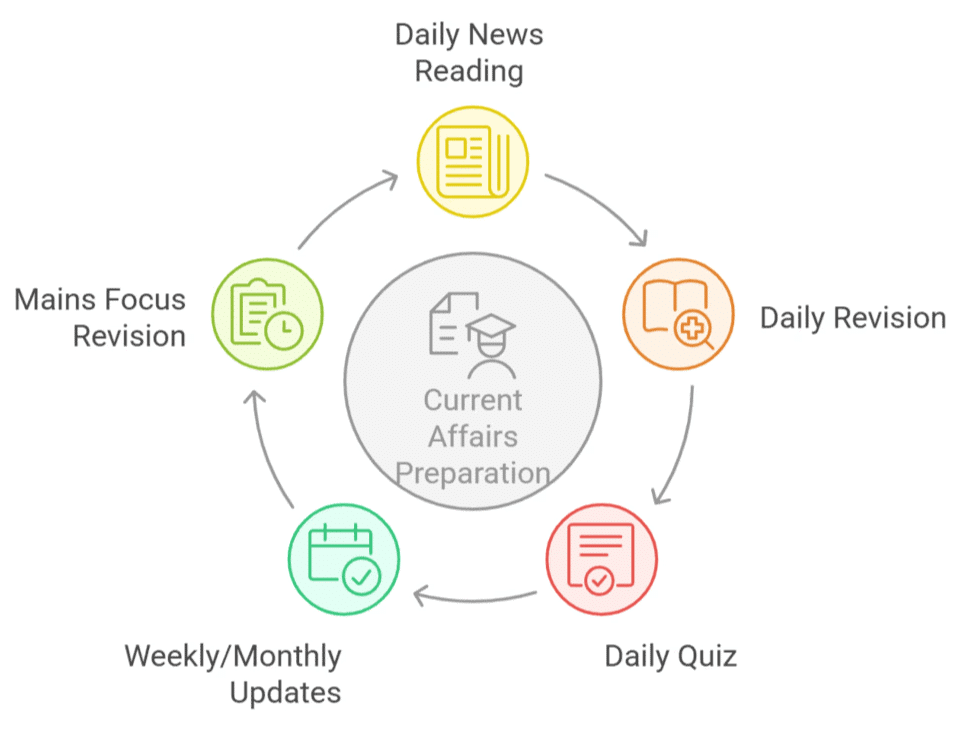
5. Mock Tests & Analysis (Daily)
- Mock Test: Take 1 Mock Test (Every day)
- Analysis: Thoroughly review mistakes made in the test to work on weak areas.
Section-Wise Strategy
How to Prepare for Reasoning Ability?
Reasoning is the most scoring section. Here’s how to approach it:- Practice Puzzles & Seating Arrangement: These topics carry significant weight, so focus on solving them regularly.
- Review Past Year Papers: Analyze past year’s questions to understand the types of puzzles, logical reasoning, and patterns.
- Other Key Topics: Syllogism, Inequality, Coding-Decoding, and Blood Relations.
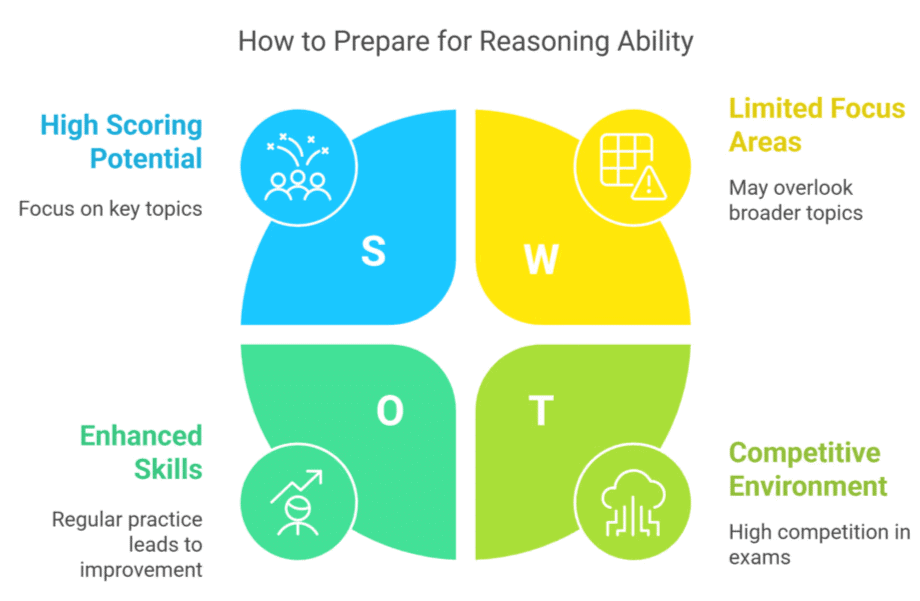
How to Prepare for Quantitative Aptitude?
- Clear the Basics: Begin with foundational topics like percentages, averages, and ratios. Don’t forget tables, cubes, and square roots.
- Practice DI and Arithmetic: These topics are crucial for both Prelims and Mains.
- Memorize Essential Tables and Cubes: Knowing cubes up to 20 and squares up to 40 will save precious time during the exam.
- Regular Practice: Devote 1-2 hours daily to practicing problems to increase your speed and accuracy.
- Learn Shortcuts: Master time-saving shortcuts to solve questions faster.
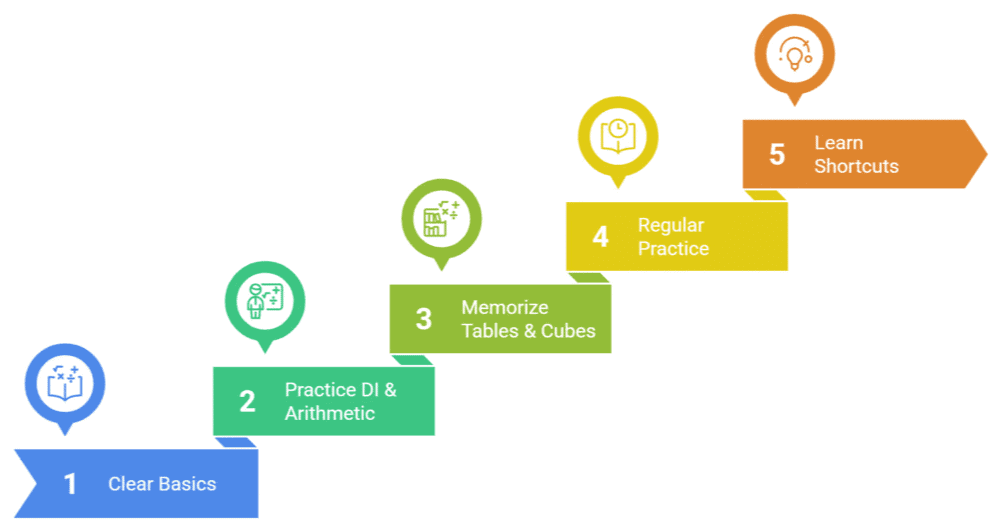
How to Prepare for English?
- Grammar and Vocabulary: Start by reviewing basic grammar rules and focus on vocabulary. Reading newspapers will help improve both.
- Reading Comprehension: Practice with 2-3 RCs daily and analyze your performance.
- Vocabulary & Error Spotting: Learn new words and focus on error spotting and fill-in-the-blanks exercises.
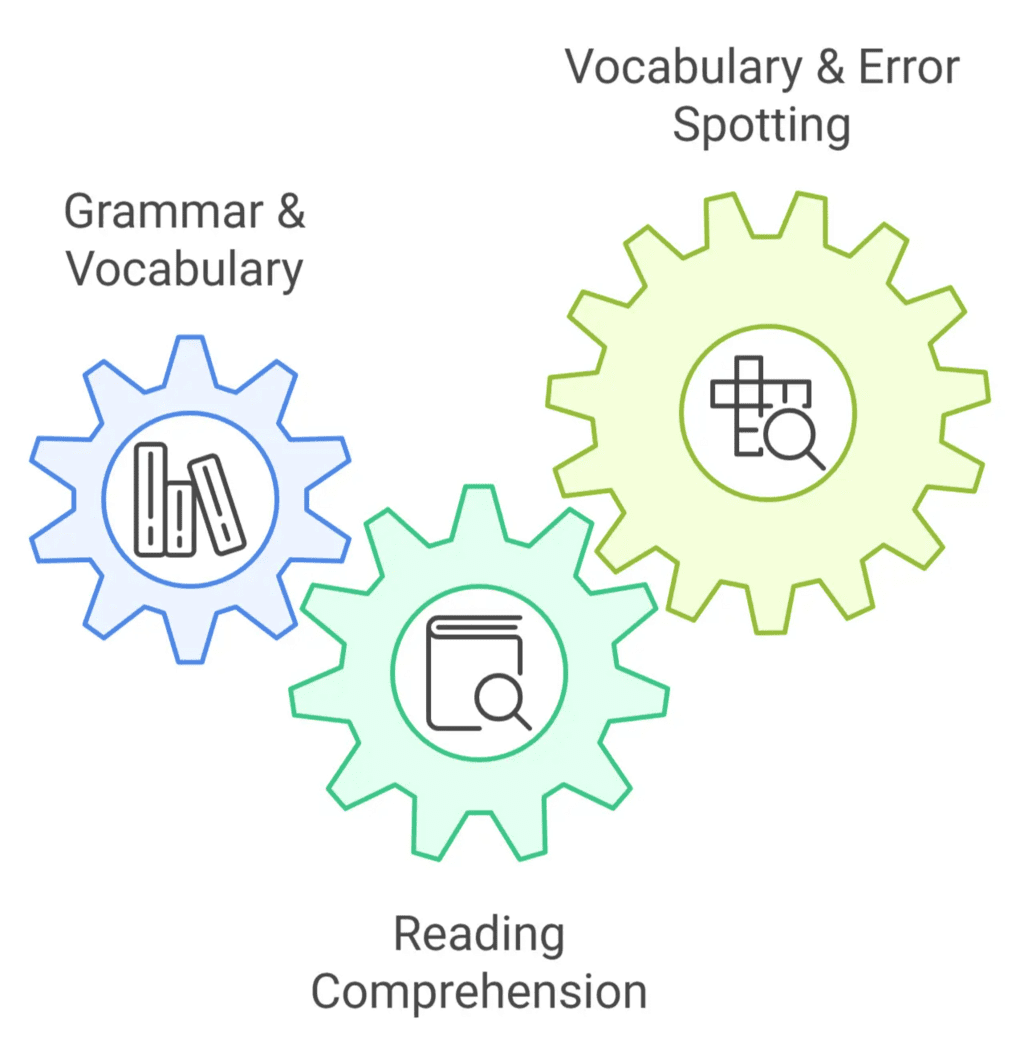
How to Prepare for General Knowledge?
- Current Affairs: Read newspapers daily, revise key topics like banking awareness, economy, and government schemes.
- Static GK: Study important facts like rivers, national parks, capitals, and currencies.
- Current Affairs Revision: Revise the last 6 months of current affairs before the Mains exam.
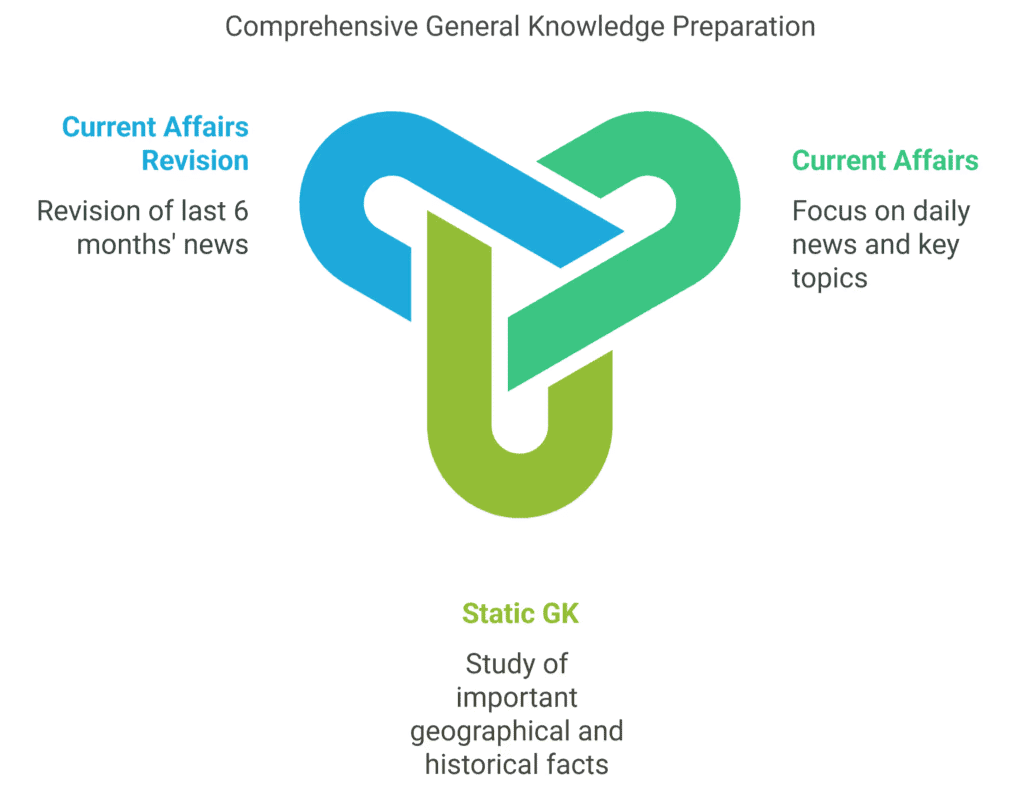
How to Prepare for Computer Awareness?
- Understand Basics: Learn basic computer operations, hardware, software, networking, and MS Office.
Study Key Concepts: Focus on frequent questions about internet technologies and common computer-related terms.
Preparation Tips for Beginners
1. Know the Exam Pattern & Syllabus: Familiarize yourself with the exam structure and syllabus for both Prelims and Mains exams.
2. Review Previous Years' Papers: Understand the types of questions and their difficulty levels.
3. Focus on Important Chapters: Identify chapters that are frequently asked and focus on them.
4. Learn from Standard Books: Build your concepts using standard books like R.S. Agarwal and Wren & Martin.
5. Practice Regularly: Solve mock tests, sectional tests, and previous year’s papers.
6. Improve Weak Areas: Work on your weak subjects regularly and give extra time to strengthen them.
How to Succeed in Bank Exams
1. Know What to Study: Understand the topics covered in Prelims and Mains exams. Focus on topics that are commonly asked.
2. Create a Study Plan: Develop a timetable that allows you to cover all subjects, balancing your time across them.
3. Choose the Right Study Materials: Stick to trusted study resources and avoid switching materials mid-preparation.
4. Consider Coaching: Join a coaching institute for expert guidance, tips, and shortcuts.
5. Identify Weak Areas: Focus on improving weak areas while revising your strong points.
6. Practice with Mock Tests: Solve as many mock tests as possible and analyze your performance.
7. Focus on Speed & Accuracy: Bank exams are time-sensitive, so practice solving questions quickly and accurately.
8. Stay Confident: Maintain a positive attitude and stay focused. Confidence can make a significant difference.
Tips for Studying at Home
1. Plan Your Study Time: Create a study schedule and allocate time wisely for each topic.2. Use Online Resources: Use online resources like video lectures, practice tests, and quizzes to enhance learning.
3. Regular Practice: Keep practicing and revising your study material to stay on top of your preparation.
4. Stay Informed: Read newspapers and magazines for current affairs and banking awareness.
Conclusion
Bank exam preparation requires consistent effort, smart strategies, and focused study. Follow this guide, stick to your schedule, and stay confident. Best of luck with your Bank Exam 2025 preparation!
FAQs on How to Prepare for Bank Exam - NABARD Manager Mock Tests & Previous Year Papers 2025 - Bank Exams
| 1. What is the best study plan for bank exam preparation? |  |
| 2. How can I effectively prepare for the Quantitative Aptitude section? |  |
| 3. What strategies should I use to improve my English skills for the bank exam? |  |
| 4. How important is General Knowledge preparation for bank exams? |  |
| 5. What are some tips for beginners preparing for bank exams? |  |





















